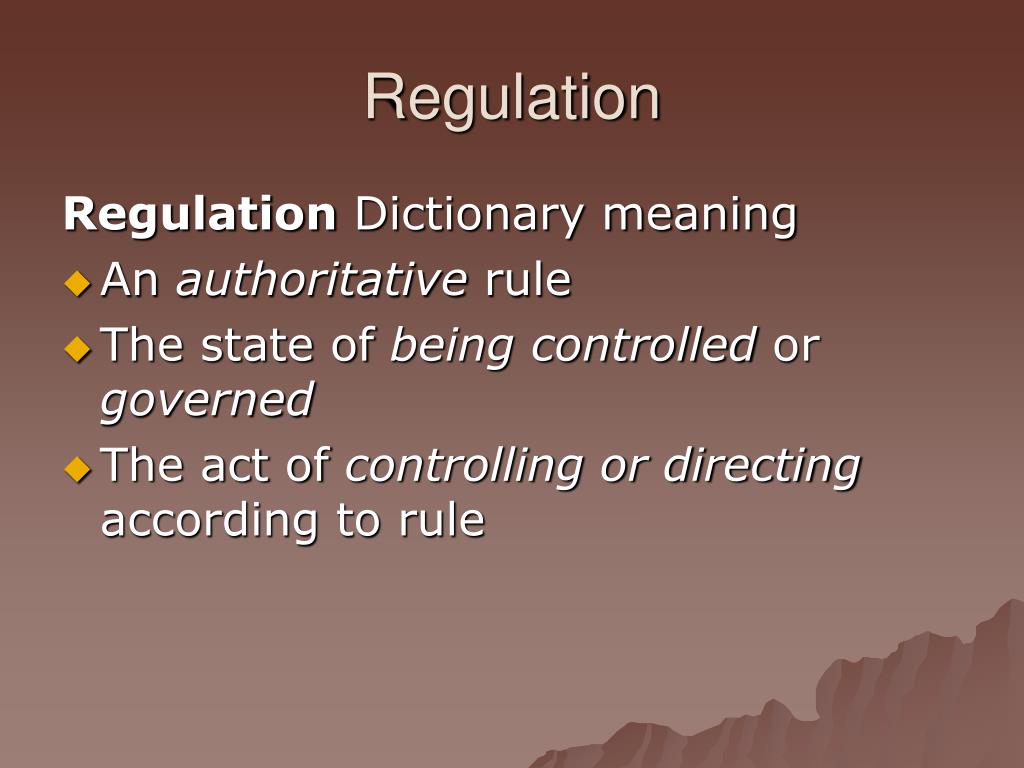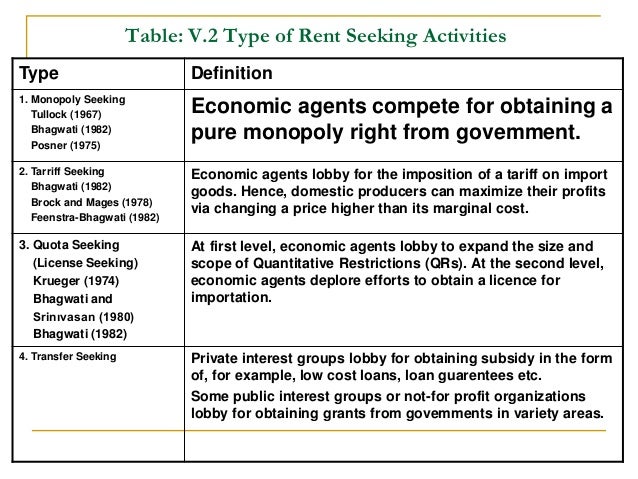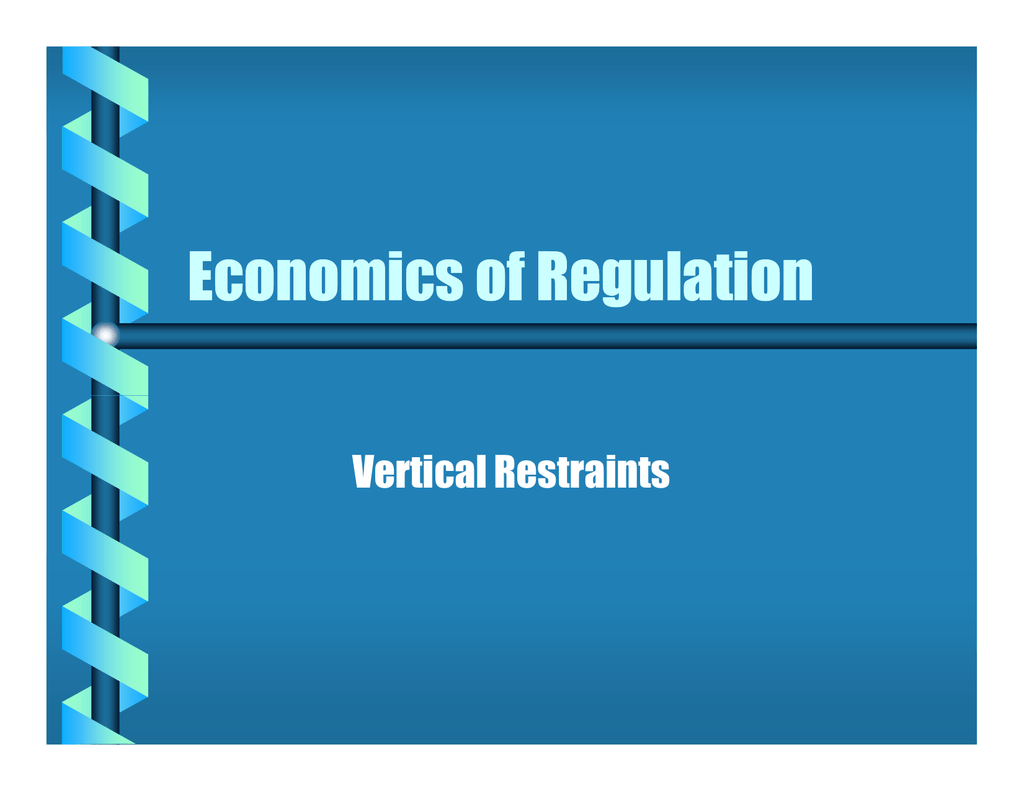Regulation Definition Economics
Regulation is a crucial aspect of economics that plays a vital role in shaping markets and protecting the interests of consumers and businesses alike. In this article, we will delve into the definition of regulation in economics, exploring its significance and various forms. We will also touch upon the latest developments in government regulations. So, let's begin exploring the world of regulation economics!
1. Understanding Regulation Economics
Regulation, in the context of economics, refers to the set of rules and guidelines established by government authorities to govern various aspects of economic activities within a country. These regulations are implemented to maintain fair competition, mitigate market failures, promote consumer protection, and ensure economic stability.

As an important feature of a market economy, regulation encompasses a wide range of sectors and industries. It sets the framework for businesses to operate while addressing externalities, monopolies, information asymmetry, and other market imperfections.
2. Categories of Economic Regulation
Economic regulations can be broadly classified into two categories: social regulations and economic regulations.
2.1 Social Regulations
Social regulations focus on protecting the well-being of individuals and communities. These regulations cover a wide array of fields, including healthcare, safety standards, environmental protection, labor laws, and consumer rights. Social regulations aim to strike a balance between economic growth and safeguarding the interests of the population.
2.2 Economic Regulations
Economic regulations pertain to the rules imposed on businesses and industries to ensure market efficiency, prevent anti-competitive practices, and safeguard the overall economy. These regulations cover areas such as monopoly prevention, price controls, licensing requirements, and standards for mergers and acquisitions. By monitoring market behavior, economic regulations aim to create a level playing field for businesses and foster fair competition.
3. The Importance of Regulation in Economics
The application of effective regulations plays a pivotal role in influencing economic outcomes. Let's explore some of the key reasons why regulation is crucial in the field of economics.
3.1 Ensuring Market Competition
Regulations help foster healthy competition by preventing monopolistic practices and fostering a level playing field. They ensure that no single entity has undue control over the market, allowing new entrants to compete and innovate. This fosters innovation, consumer choice, and economic efficiency.
3.2 Consumer Protection
One of the fundamental objectives of economic regulation is to protect consumers. Regulations enforce quality standards, ensure fair pricing practices, and provide avenues for consumers to seek redressal in case of grievances. By safeguarding consumer interests, regulations instill confidence and trust in markets.
3.3 Correcting Market Failures
Markets are not immune to failures, and regulations aim to address these failures effectively. Externalities, information asymmetry, and inadequate public goods provision are some of the market failures that regulations attempt to rectify. By intervening and implementing appropriate policies, regulation helps optimize resource allocation and mitigate inefficiencies.
4. Latest Developments in Government Regulations
The regulatory landscape is dynamic, continually evolving to keep pace with the changing economic environment. Here are some notable recent developments in government regulations:
4.1 Digital Economy Regulations
The advent of the digital economy has prompted governments to introduce regulations pertaining to data privacy, cybersecurity, online platforms, and e-commerce. These regulations aim to protect consumer data, foster trust in digital transactions, and address potential market dominance by tech giants.
4.2 Environmental Regulations
With growing concerns about climate change and resource depletion, governments worldwide have focused on implementing environmental regulations. These regulations span areas like emission control, renewable energy targets, waste management, and sustainable development practices.
4.3 Financial Sector Regulations
The global financial crisis of 2008 highlighted the need for enhanced regulations in the financial sector. Governments have since introduced stricter regulations on banks, financial institutions, and investment practices to prevent systemic risks, protect consumers, and ensure financial stability.
5. Frequently Asked Questions (FAQ)
5.1 What is the role of regulation in economic growth?
Regulations play a vital role in shaping economic growth by ensuring fair competition, protecting consumers, and correcting market failures. They provide a stable economic environment that encourages investments, innovation, and overall economic development.
5.2 Can regulations hamper business growth?
While regulations are necessary, excessive or poorly designed regulations can impose significant burdens on businesses, hindering their growth and competitiveness. Striking the right balance between regulation and market freedom is crucial for sustainable economic growth.
5.3 How do regulations impact consumers?
Regulations impact consumers in several ways. They ensure product safety, prevent unfair pricing practices, and offer avenues for grievance redressal. By instilling trust and confidence in the market, regulations empower consumers to make informed choices and protect their interests.
Regulation economics encompass a wide range of areas, from safeguarding market competition to protecting consumer interests. Governments constantly evolve regulations to address emerging challenges and ensure sustainable economic growth. By understanding the nuances of regulation economics, we can comprehend the underlying mechanisms that shape our economies and societies.
Sources:
Government Regulation Definition Economics - Definitionf
 Image Source : definitionf.blogspot.com
Image Source : definitionf.blogspot.com What Does Risk Based Regulation Mean The Regulatory Review - Gambaran
 Image Source : 45.153.231.124
Image Source : 45.153.231.124 Government Regulation Definition Economics
 Image Source : regulationlatest.blogspot.com
Image Source : regulationlatest.blogspot.com definition money fiat regulation government latest examples market business economics
Economic Regulation – Working Of A Regulatory Economy – ACE Money Transfer
 Image Source : blog.acemoneytransfer.com
Image Source : blog.acemoneytransfer.com regulatory regulasi jenis risiko bisnis millenial menyulitkan temui kaget
Economics Of Regulation And Control
 Image Source : www.slideshare.net
Image Source : www.slideshare.net regulation economics regulatory impossibility possibility examples rational economy rati
Latest Regulation: Government Regulation Definition Economics
 Image Source : regulationlatest.blogspot.com
Image Source : regulationlatest.blogspot.com capitalism crony regulation economy government regulatory policy economic definition business baptists bootleggers committee development economics relations unhealthy between captured latest
Latest Regulation: Government Regulation Definition Economics
 Image Source : regulationlatest.blogspot.com
Image Source : regulationlatest.blogspot.com government regulation definition latest brawl washington coming there over economics
Regulation Economics Definition
 Image Source : regulationlatest.blogspot.com
Image Source : regulationlatest.blogspot.com monopoly regulation restraints
Latest regulation: government regulation definition economics. Capitalism crony regulation economy government regulatory policy economic definition business baptists bootleggers committee development economics relations unhealthy between captured latest. Regulatory regulasi jenis risiko bisnis millenial menyulitkan temui kaget. Monopoly regulation restraints. Government regulation definition latest brawl washington coming there over economics